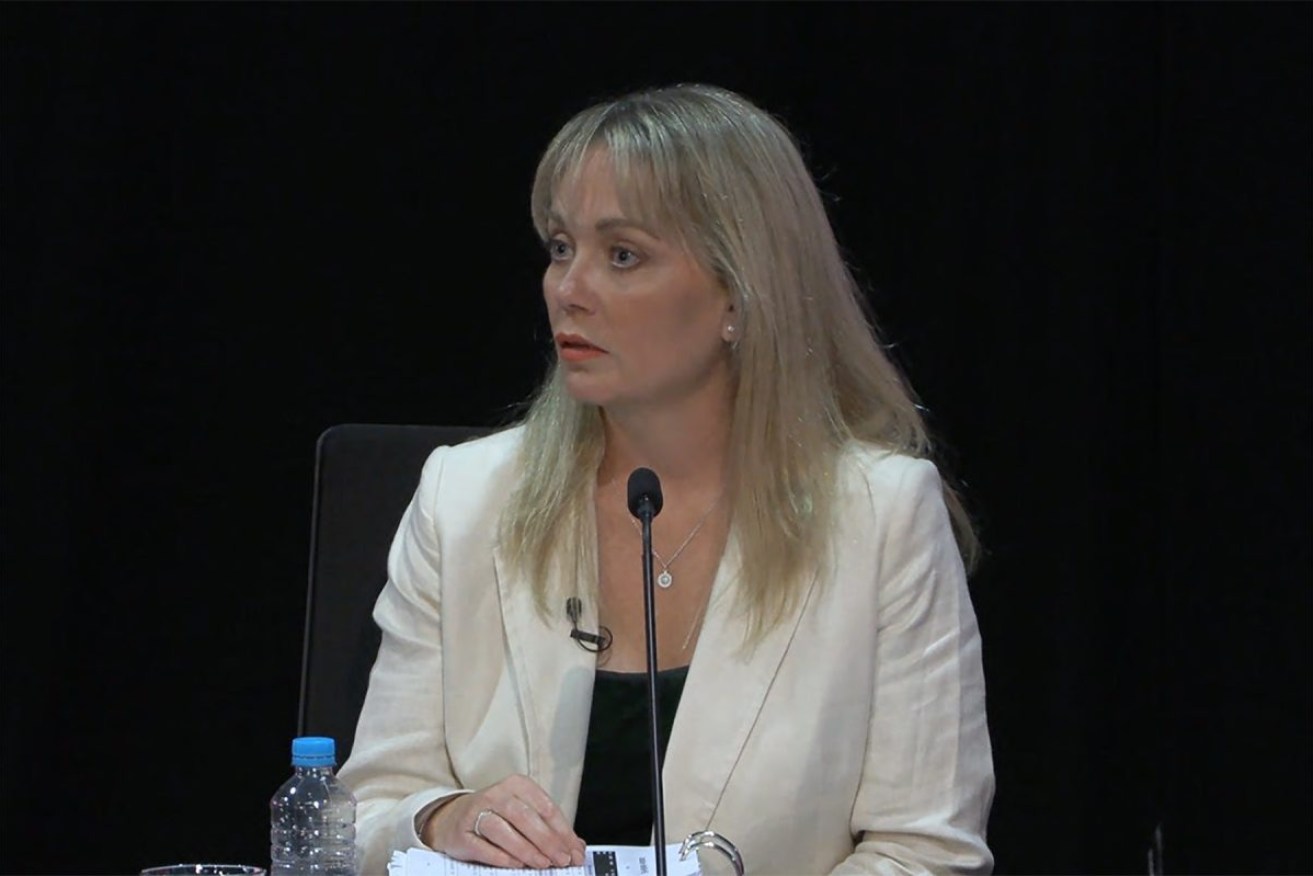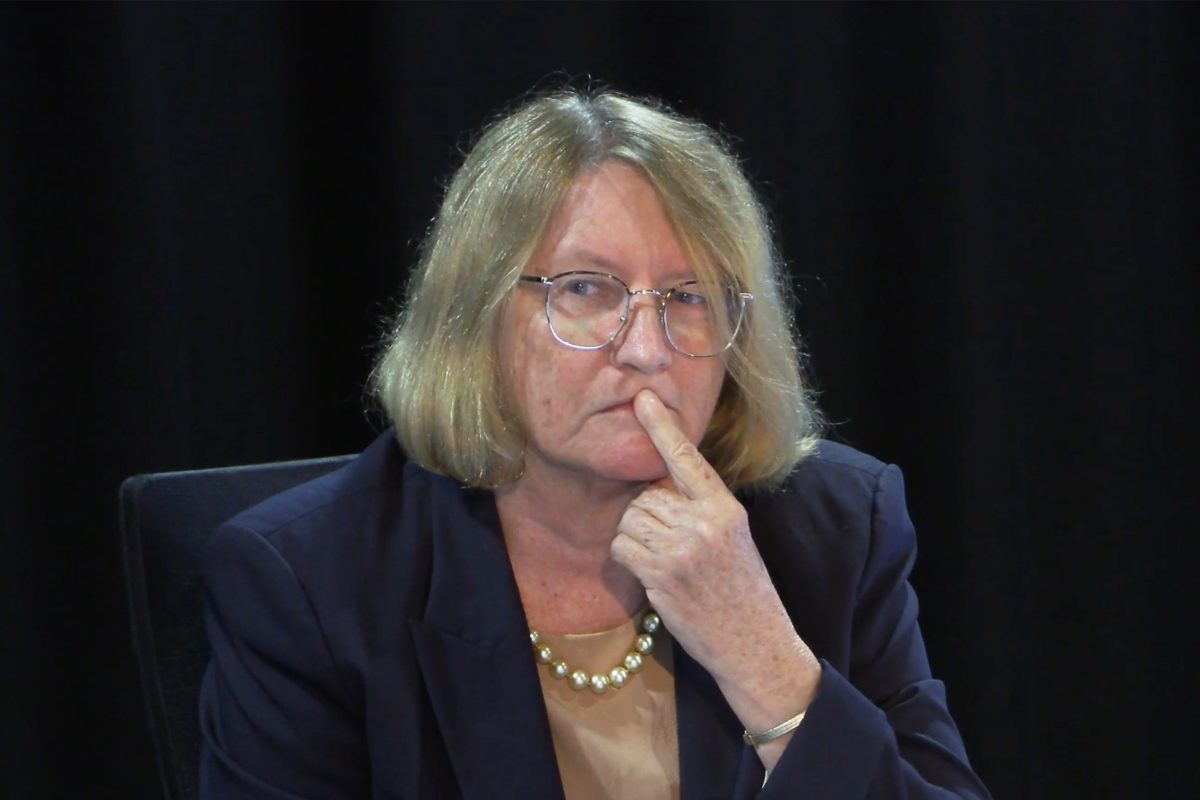‘Shut this story down’: Minister distributed Centrelink data of robodebt complainants
Former Human Services Minister Alan Tudge requested access to the private Centrelink files of robodebt recipients who spoke to media about the illegal scheme and personal data was handed to journalists to “correct the record”, his former media adviser has told a Royal Commission.

Rachelle Miller, former senior media adviser to Liberal minister Alan Tudge, gives evidence on Tuesday. Photo: AAP/Royal Commission into the Robodebt Scheme
The inquiry into the Centrelink debt recovery scheme heard evidence on Tuesday from Tudge’s former media adviser, Rachelle Miller, who served in the role between 2016 and 2017.
Miller told the hearing select pieces of information from personal files were also provided by the department’s office to some journalists in an effort to “correct the record” in the media following negative stories about individual cases who had received a robodebt notice.
“The minister requested the file of every single person who appeared in the media so that we (could) see the exact transactions that they’d had with Centrelink and understand what the details of their case was,” Miller said.
“The legal advice to us was that we were able to (provide personal information to journalists) but just the specific pieces of information … it was just specific lines that contradicted what had been said in the original (media) piece.”
Miller – who last year received a $650,000 taxpayer-funded settlement for damages after working in the offices of Tudge and Finance Minister Michaelia Cash – said the strategy was deployed after attempts at pushing counter-narratives about the scheme were unsuccessful and groups of journalists reporting on robodebt at the time became “vindictive”.
Miller said Tudge was forceful about finding case studies of people who had received Centrelink debt notices so they could be used in the media as well as political attacks.
She told the hearing she first heard about the robodebt scheme in late 2016 and that it suited the government narrative on cracking down on welfare debt.
“We were under a great deal of pressure there and I think that I saw that as a good story opportunity,” she said.
The commission heard concern about negative stories about the robodebt scheme escalated during late 2016 and into early 2017.
Miller said there was significant concern within the government that the stories about robodebt needed to go away.
“(Mr Tudge) was very firm with me that I need to shut this story down,” she said.
“The minister became quickly aware that (then prime minister Malcolm Turnbull) was unhappy with the escalating media issue around this.”
Despite the negative attention, Miller said feedback from the prime minister’s office was that the scheme enjoyed a positive reception in key marginal electorates and people supported it.
The Centrelink debt recovery scheme used annual tax office data to calculate fortnightly earnings and automatically issue welfare debt notices.
The controversial program recovered more than $750 million from over 380,000 people and led to several people taking their own lives while being pursued for false debts.
Tudge will appear as a witness on Wednesday.
Earlier, royal commissioner Catherine Holmes blasted former top lawyer for the Department of Human Services Annette Musolino on the lack of response by the agency following tribunal decisions raising issues with the legality of robodebt.
“You were chief counsel, you were supposed to keep an eye on this, weren’t you? You seem to have been oblivious to what was going on in the (Administrative Appeals Tribunal),” the commissioner said.
“It seems to me you let this system run, getting decisions from the AAT that told you there was a fundamental problem with its legality.”

Robodebt Royal Commissioner Catherine Holmes. Photo: AAP/Supplied
Musolino said the department had operated in the framework that had been laid out by government departments in charge of the scheme.
“Each and every one of those decisions was looked at by a lawyer, reviewed and a recommendation was made. I couldn’t do the work of every lawyer in the division,” Musolino told the commission.
“But I was confident that there were systems in place.”
The former chief counsel said the department had “tight timeframes” to respond to AAT decisions on the robodebt scheme.
“We were following the operational statements that we had from the Department of Social Services. They basically required that we consider an appeal or we implement (the findings).”
-with AAP




